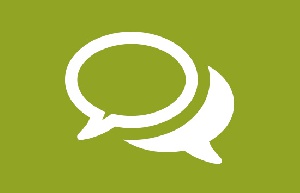In other words, the comparative critiques of Mazrui and Appiah against Nkrumah and Du Bois, respectively, do not make the latter two lazy thinkers per se, rather they demonstrate their gratitude to the intellectual and political leadership of their mentors, a situation very much unlike the little-known one involving Albert Einstein who denied ever reading some of the influential papers of Henri Poincare, a noted French polymath, although certain important concepts exclusive to Poincare’s scientific papers had made inexplicable appearances in Einstein’s scientific papers on relativity. Einstein in fact worked in the Swiss Patent Office at the time and was responsible for reading submissions and assigning them patent numbers (For a full discussion, see Dr. Chandra Kant Raju’s essay “Einstein: From Icon to Con-Man.”
Thus, Mazrui’s intellectual and emotional attachment to Ghana came through his intimate knowledge of the inner workings of Kwame Nkrumah and Nkrumah’s influence on his intellectual life. Mazrui further shared two indispensable additional features with Nkrumah: Mazrui received the 1998 Icon of the Twentieth Century Award from Lincoln University, Nkrumah’s alma mater; Mazrui also launched “Africa’s 100 Best Books of the 20th Century” in Ghana, Nkrumah’s creation. Nonetheless, with the viral instinct of Eurocentrism infecting every pore of Mazrui’s entire corpus of scholarly work and his subtle defense of colonialism, if inadvertently, at the expense of African dignity and continental organization, some keen observers have been quick to make exorbitant claims alleging clandestine collaborations between Mazrui and the CIA.
This assertion has been extremely difficult to prove for lack of credible evidence. On the other hand a lack of evidence does not deny the portfolio of allegations material possibility. Such notable instances of scholars’ collaborating with external intelligences in the internal destabilization of their home countries abound. Stated differently, a possible collaboration between Mazrui and the CIA should not have to be a conscious one. This is not to say Mazrui did indeed work with the CIA, rather it is to say the allegations are conspiratorial at best and, as well, it reeks of character assassination. Perhaps a formal request to the American government for the Freedom of Information Act might shed some light on this divisive controversy.
A good example should put our contention in the clear. For instance, Wole Soyinka’s, Chinua Achebe’s, and Ezekiel Mphahlele’s membership in or association with the Center for Cultural Freedom (CCF), an organization created and funded by the CIA to monitor African governments for purposes of subverting those that opposed Western hegemony and cultural values, may not have been deliberate or conscious at all. Soyinka never knew this fact until the news broke out, probably through de-classification of intelligence records or from a highly placed source, that the Center for Cultural Freedom (CCF) was indeed a front for the CIA. Outfits such as the Center for Cultural Freedom (CCF) are technically referred to as front organizations.
In fact, the cultural and artistic orientation of CCF’s mission may have been the necessary attractions for Soyinka and his friends to join the organization. Therefore, more information, credible ones of course, have to be made available in order to put the allegations against Mazrui in their contextual frames of evidential substantiation. Anything short of this humble admission will be tantamount to character assassination! Even the idea that he was less critical of Islamic terrorists has been to eternal rest. Prof. Campbell maintains in that regard:
“Mazrui was an outspoken critic of both the US imperial war on terror and those extremists such as Boko Haram and other Jihadists. Because of his challenge to the conservatives his writings were not liked in Saudi Arabia and the Gulf where the Wahhabists were using their billions to foment hatred and divisions.”
In the main, Mazrui, like Toni Morrison, Chinua Achebe, Kwame Nkrumah, W.E.B. Du Bois, Ama Ata Aidoo, Molefi Kete Asante, Walter Rodney, Cheikh Anta Diop, Ngugi wa Thiong’o, Wole Soyinka, Arthur Lewis, Derek Walcott, and so on, despite their faults, is read around the world. Mazrui was an international scholar by virtue of his professorial association with a number of world-class institutions, including Cornell University (USA), Jomo Kenyatta University of Agriculture and Technology (Kenya), National University of Singapore (Singapore), University of Chicago (USA), University of Guyana (Guyana), Stanford University (USA), Oxford University (UK), University of Jos (Nigeria), Ohio State University (USA), Harvard University (USA), and several others.
Both “Foreign Policy (USA)” and “Prospect Magazine (UK)” ranked him one of the Top 100 Global Thinkers (2005). He received several prestigious awards as well for his professorial excellence, dedication to humanism, and scholarly publications. Lastly, Mazrui published 26 internationally acclaimed books together with hundreds of influential papers (See Hatem Bazian). Prof. Horace G. Campbell on the other hand writes: “Ali was a prodigious writer who was the author of co-author of more than 35 books, numerous book chapters, and hundreds of scholarly articles, magazine and newspaper…”
What else did Mazrui do for humanity, particularly Africa? “Mazrui was also an early critic of the type of African communism that developed in the post-colonial era, considering it to be another dimension of Western influence. More recently, Mazrui provided a critical assessment of African neo-liberal economics while remaining committed to the notion of African liberalism as a concept emerging from the historical experiences of the continent and its diverse people. Furthermore, Mazrui offered constructive analysis of Islam’s role in society and the emergence of Islamism while at the same time rejecting the emerging violence in many parts of the Muslin world,” writes Hatem Bazian. “Mazrui was a global figure prepared to take on the world. He was among the first to compare Israel’s occupation of Palestine to South Africa and was an early supporter of the anti-Apartheid struggle. He was a steady critic of exploitative capitalism; US and European military interventions, including the Iraq and Afghan wars; and Western intervention in the developing world.”
Hatem’s remarks put Mazrui in the same moral class as Jimmy Carter, a Christian and ex-US President writer whose controversial book “Palestine: Peace Not Apartheid,” re-appraises Middle Eastern geopolitics with particular reference to Apartheid South Africa. How then may we remember Prof. Ali Mazrui, one of the 20th century’s most fearless, accomplished, influential, and prolific thinkers? Perhaps his critical commentary on the legacy of Kwame Nkrumah should do. We paraphrase him thus: “Kwame Nkrumah was not so much a leader of Ghana as a leader of Africa on the basis of his selfless devotion to the cause of Africa’s de-colonization at the expense of Ghana’s internal development.”
Does it matter that Ghana is part of Africa, of the world? Does it matter that Ghana gave up her freedom in exchange of Africa’s and the world’s freedom? Does it matter that Kwame Nkrumah made Ghana what it is today? Does it matter that Kwame Nkrumah made the world a better place for Ali Mazrui and others to put their intellectual resources and human gifts at the service of humanity? And does it matter that Kwame Nkrumah never dies?
There is more to Ali Mazrui’s complex story. Here is just one: “It should be remembered that Ali Mazrui had studied Western political science at the height of the Cold War when Lockean principles of liberty and the Walt Rostow ideas of modernization were in vogue,” writes Syracuse University history Prof. Horace G. Campbell, a close friend of the late Marzrui, adding: “It was in this intellectual milieu that Ali Mazrui wrote on “Kwame Nkrumah as the Leninist Czar” and wrote about “Tanzaphalia,” in reference to the experimentation with another form of economy in Tanzania under Julius Nyerere. Kwame Nkrumah who was then still alive and had read the essay on Nkrumah the Leninist Czar said the essay was penned by one with a colonial mind. Later in his life Ali Mazrui became one of the steadfast proponents of the Nkrumahist vision of African Unity and liberation.”
Talking of Nkrumah’s vision on African Unity and liberation, what lessons have African leaders and the African peoples drawn from Mazrui’s novel “The Trial of Christopher Okigbo” since Okigbo’s death? What lessons have African leaders and the African peoples drawn from Chinua Achebe’s “There Was A Country: A Personal History of Biafra” since Achebe’s death? What lessons have African leaders and the African peoples drawn from Nelson Mandela’s “Long Walk to Freedom” since Mandela’s death? What lessons have African leaders and the African peoples drawn from Wole Soyinka’s “The Open Sore of a Continent: A Personal Narrative of the Nigerian Crisis,” “Of Africa,” and “The Burden of Memory, the Muse of Forgiveness”? What lessons have African leaders and the African peoples drawn from Godfrey Mwakikagile’s “Africa is in A Mess: What Went Wrong and What Should be Done”?
When all is said and done, Mazrui’s “triple heritage theory” may, though it may not have come consciously or directly to him, Mazrui, as well relate to the incongruent cultural complexions of the triumvirate, Soyinka a religious traditionalist, Mazrui a Muslim, Gates a Christian, not unlike the theoretical underpinnings of Blyden’s “Christianity, Islam and the Negro Race” as well as of Nkrumah’s “Consciencism: Philosophy and Ideology for Decolonization,” the latter seeking the socio-cultural soul of harmony in the turbulent companionship of disharmonies. All three great thinkers have also taught humanity some practical lessons about life. Gates, Mazrui, and Soyinka have taught us not to accommodate the philosophical innards of the prison walls of orthodoxy, conservatism, or tradition if doing so actually ends up aggravating the human condition.
They changed the discourse and rhetoric of racial inequality to a paradigm of multicultural equalitarianism. We would have wished if Africa had transferred their kind of out-of-the-box thinking to the sphere of science. In fine, readers should be prepared to read the forthcoming three-edited volume piece, titled “Africanity Revisited: Collected Essays of Ali A. Mazrui,” edited by Michael Toler, Ricardo Rene Laremont, and Tracia L. Seghatolislami. Fortunately the first volume is already out. “Wole Soyinka: A Bibliography of Primary and Secondary Sources,” authored by Henry Louis Gates, Jr., Ketu Katrak, and James Gibbs, is an excellent read. These three authors are respected Soyinka scholars. A lectureship “The Henry Louis Gates, Jr. Lectures” has been named in Gates’ honor at Yale University. Ivor Agyeman-Duah’s and Ogochukwu Promise’s “Crucible of the Ages, Wole Soyinka at 80: Essays in Honor of African Literary and Cultural Studies” is a must-read.
Readers will do well to also read everything Harvard University’s Prof. Biodun Jeyifo, one of Soyinka’s former students, has written on Soyinka and his works. Steve Bradt writes of Prof. Jeyifo: “Literary critic Biodun Jeyifo, an authority on African drama widely viewed as the world’s leading interpreter of works by Nigerian writer and playwright Wole Soyinka, has been appointed professor of African and African-American Studies in Harvard University’s Faculty of Arts and Sciences…Jeyifo, 60, comes to Harvard from Cornell University, where he has been a professor of English since 1988…Jeyifo’s early essays single-handedly shaped critical discourse on dramatic works by Soyinka…”
Bradt continues: “Jeyifo’s three subsequent books extending the scope of these essays have established him as a top interpreter of Soyinka. His most recent book, ‘Wole Soyinka: Politics, Poetics, Postcolonialism,’ weighing Soyinka’s vast and complex body of work, is arguably the most sophisticated analysis of any single author in African literature (See “Renowned Authority on African Drama Comes FAS: Literary Critic Biodun Jeyifo Comes to Harvard from Cornell,” Harvard Gazette Archives).”
Did Mazrui succeed in bringing harmony to the world through his active intellectual engagement with Nkrumah’s “consciencism” and Nkrumahism? On the other hand, does Mazrui’s “triple heritage” not sound more like the tensions linking him to Gates and Soyinka?
We hope not?
End of tribute!
Opinions of Thursday, 23 October 2014
Columnist: Kwarteng, Francis
A Tribute: Ali Mazrui, Ghana, & The World (3)
Entertainment














